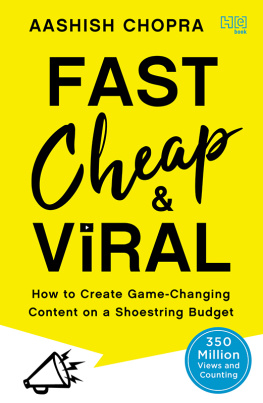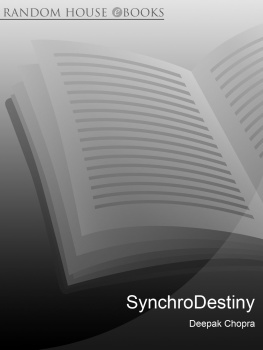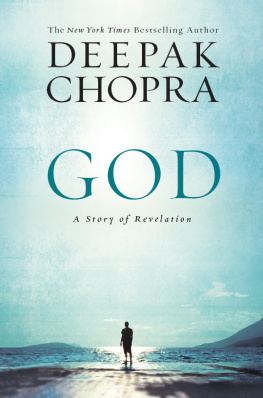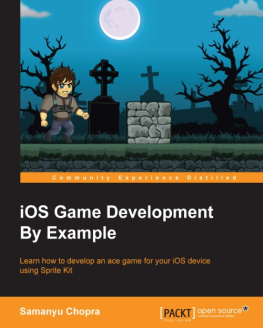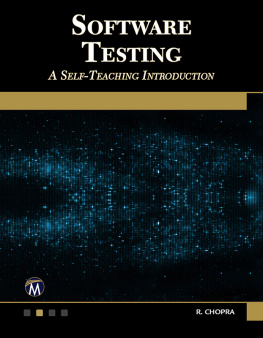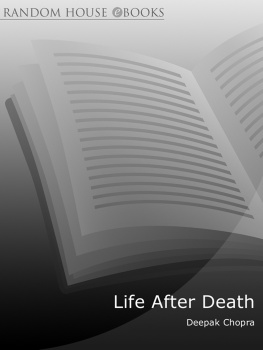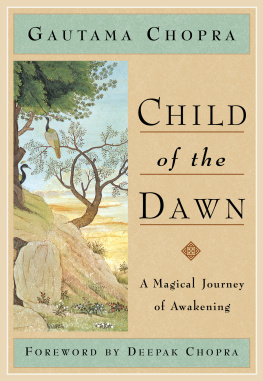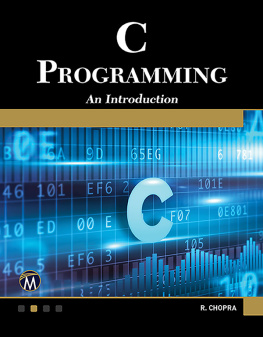Chopra - When I Was 25: The Leaders Look Back
Here you can read online Chopra - When I Was 25: The Leaders Look Back full text of the book (entire story) in english for free. Download pdf and epub, get meaning, cover and reviews about this ebook. City: India, year: 2014, publisher: Random House Publishers India Pvt Ltd, genre: Home and family. Description of the work, (preface) as well as reviews are available. Best literature library LitArk.com created for fans of good reading and offers a wide selection of genres:
Romance novel
Science fiction
Adventure
Detective
Science
History
Home and family
Prose
Art
Politics
Computer
Non-fiction
Religion
Business
Children
Humor
Choose a favorite category and find really read worthwhile books. Enjoy immersion in the world of imagination, feel the emotions of the characters or learn something new for yourself, make an fascinating discovery.
- Book:When I Was 25: The Leaders Look Back
- Author:
- Publisher:Random House Publishers India Pvt Ltd
- Genre:
- Year:2014
- City:India
- Rating:3 / 5
- Favourites:Add to favourites
- Your mark:
- 60
- 1
- 2
- 3
- 4
- 5
When I Was 25: The Leaders Look Back: summary, description and annotation
We offer to read an annotation, description, summary or preface (depends on what the author of the book "When I Was 25: The Leaders Look Back" wrote himself). If you haven't found the necessary information about the book — write in the comments, we will try to find it.
When I Was 25: The Leaders Look Back — read online for free the complete book (whole text) full work
Below is the text of the book, divided by pages. System saving the place of the last page read, allows you to conveniently read the book "When I Was 25: The Leaders Look Back" online for free, without having to search again every time where you left off. Put a bookmark, and you can go to the page where you finished reading at any time.
Font size:
Interval:
Bookmark:

RANDOM HOUSE INDIA

Shaili Chopra is an award-winning journalist who reports on business and economic affairs. She has worked with ETNOW, NDTV and CNBC. She was presented the Ram Nath Goenka Award for the best in business journalism for 2010-11 and the News Television Award for Best Reporter for 2007. She is among the most trusted faces in Indian journalism and known for breaking news and her incisive interviewing style. Industry chamber FICCI conferred upon her their Young Leader Award. CNN-IBN counted her among the 30 witty, intelligent women to follow on Twitter.
She is currently working on digital content platforms in her new avatar as a young entrepreneur. In a career of over fifteen years, through her interactions, she has been a keen observer of leadership and success stories.
When I Was 25 is Shaili's third book. Her second book, The Big Connect: Politics in the Age of Social Media, was published earlier this year by Random House India.
Also by Shaili Chopra
The Big Connect: Politics in the Age of Social Media
Mom and dad
for loving me unconditionally
and for putting up with all my madness
Its not magic but madness which precipitates the success of the best leaders. The stories of these thirteen people completely shattered my assumptions about leadership, success, and wisdom. And for good reason. They didnt need career counsellors, they didnt chase mentors, almost all of them studied something they wouldnt pursue later in life, they were lost and okay with that, and they did well in life by eliminating those who doubted their passions. Most of their best laid plans in their twenties stayed just that, plans. In their youth, few of these amazing personalities had any inkling of their eventual success stories. These fascinating accounts of their lives are not career graphs, they are about how they learnt from experiences, travel, people, the mistakes they made, and how they embraced failure. They show why madness is a necessary ingredient in dreaming big and how every success must be savoured and enjoyed. These people were not born leadersthey shaped their destiny to become spectacular achievers.
I wrote this book for many reasons. Our country is changing, its being shaped by those who make up its majoritythe youth. There is hunger for opportunities with pangs for success. To make it big. At 25, a lot of people in India are taking risks and starting up. These millennials are running businesses. They are leading teams. Many of them have a number they are chasing50 crores, 100 crores, a million dollars, or some such other. The reason I wanted to write this book is because I believe life at 25 isnt only about valuations. Its not only about successes. Its actually about challenges, failures, confusion, chaos, and madness. And through all of that emerge leadership qualities and personal character strengths that allow many a summit in peoples lives. Through these stories I have been able to capture the journey and excitement of these leaders and what inspired and determined their plans in their twenties. Its a book that establishes that success isnt dependent on technical, educational, or marketing skills. Its something deeper in the bone marrow. Its strength of character and not just the pursuit of winning.
Adi Godrej worked as a bellboy in a national park in the US, it taught him how to live on a shoe string budget and respect for labour. Rajdeep Sardesai interviewed the PM at 24, but later regretted that he might have been too young for it. Lesson learntno replacement for knowledge and experience. Chairman of DLF, K.P. Singh was fairly distracted when he was young. In his early twenties, he fell in love with a girl of high birth and imagined an aristocratic future playing polo in England. Why did he return to India and how did he transform his life? Former Finance Minister P. Chidambaram escaped the familys textile business to do law but returned to be a leftist for his decade of the twenties. What did those experienceswhen he was armed with pink communist ribbons in protestteach him about trade unions and the economy? What did such diverse incidents do to his character and life?
Being a great leader is about personal relationships, connecting with people, learning from mistakes, and going beyond success as the sole benchmark in life. All these leaders were seeking direction, looking for big ideas, collaborating, struggling, and challenging the status quo around them. The book articulates that they learned a lot in their twenties. And after all those decades and accolades, they are still learning.
U day Shankar, the CEO of Star India has launched many a career but he started his own life playing luck by chance, steering his passions, being a bit arrogant, questioning the status quo, and going after politics. A postcard launched his editorial dreams as it carried a job offer. The gulf war got him hooked on to television. He joined television willing to carry tripods for others and later went on to build news empires. He was driven by the idea of being the decision maker at a news organization and not by being a face instantly recognizable to bouncers outside a disco. For someone who went through college life as a leftist jholawala, his career took him to serious capitalist heights where delivering the goods and TRPs drove his business. Today Uday goes down in media history as someone who stuck his neck out, broke new ground, built media empires, and threw original ideas up in the air. How did he do it? Did he suffer from the usual dilemmas in his twenties between ideologies and reality? How did journalism change him? After so many yearsmost of his twentiesof being in news television, what prompted him to write off the news industry?
I am to meet Uday Shankar at the exclusive lounge of a five-star hotel in Mumbai. Of all the things I could expect of Uday Shankar, I didnt think he would walk in wearing a comfortable pathani suit and Pakistani chappals. During the course of our conversation, I find that Uday is just as unperturbed and calm as his dressing style. He is comfortable in his skin. His role as the powerful chief executive of Star TV, if nothing else, has made him a little more reclusive and private.

The man we know today as a media mogul, was occupied with an entirely different purposeactivism and left-leaning journalismin his twenties. This is when television and media were new to the world and India was stuck with the sole source of newsthe government-owned network Doordarshan.
Udays twenties were marked with many diverse things, objectives, and opportunities. I asked him to describe his twenties. This is not an easy question to answer, he admits. The world was an entirely different place in the 1980s. I wasnt thinking much back then. Like any young person I was floating in ideas and smoke, he describes metaphorically. To think that this global newsmaker, rustic media thinker, behind the scene production whiz was just lost in oblivion is hard to imagine. But life in his twenties was indeed quite like that. He was absorbed in college life at Jawahar Lal Nehru University, which is considered to have leftist leanings, and had dreams and desires to do something worthwhile. I was unfocused then. I was just exploring life and one didnt have clear goals to pursue. Even though Uday wasnt sure of what he wanted, he knew exactly what he didnt want. I knew I didnt want to be part of IIMs. I did not want a job with Morgan Stanley. Life was fun and
Font size:
Interval:
Bookmark:
Similar books «When I Was 25: The Leaders Look Back»
Look at similar books to When I Was 25: The Leaders Look Back. We have selected literature similar in name and meaning in the hope of providing readers with more options to find new, interesting, not yet read works.
Discussion, reviews of the book When I Was 25: The Leaders Look Back and just readers' own opinions. Leave your comments, write what you think about the work, its meaning or the main characters. Specify what exactly you liked and what you didn't like, and why you think so.


